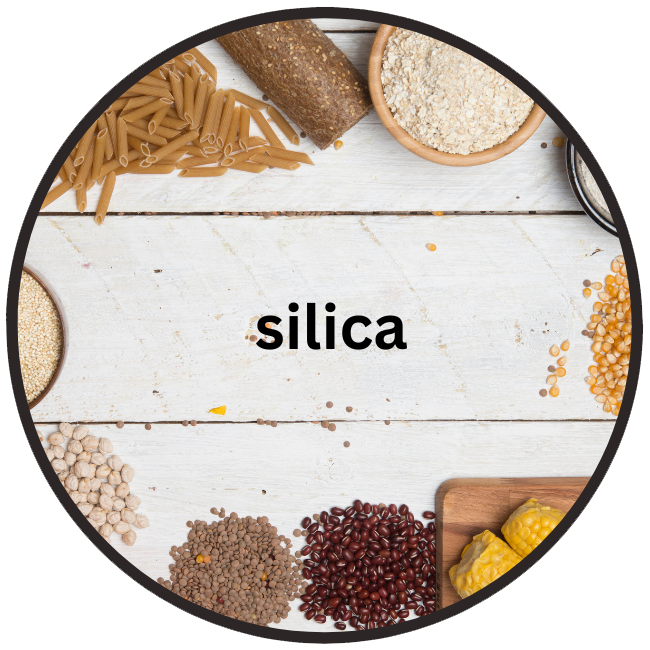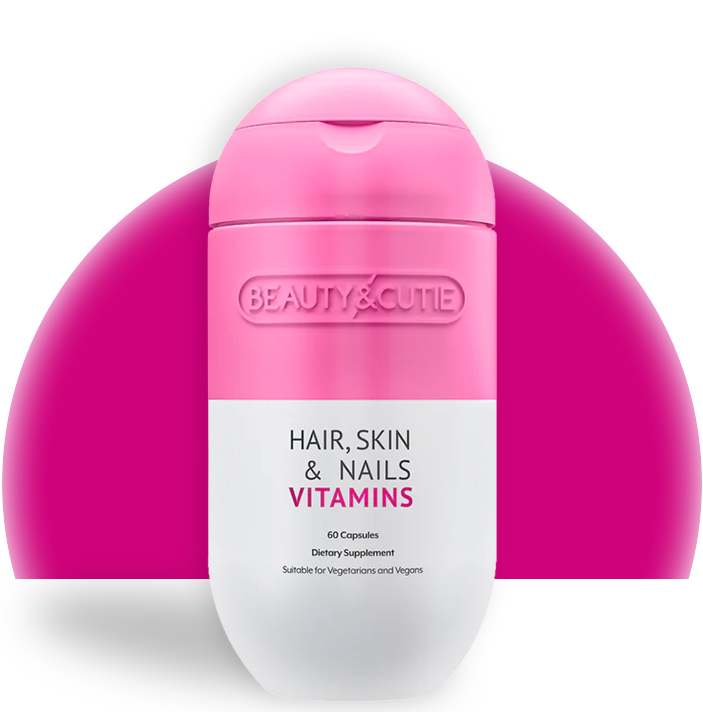
WHAT IS SILICA?
Silica is a natural compound that is composed of the elements silicon and oxygen. It is frequently recognized as the mineral quartz, one of the most commonly found minerals on earth. Silicon is absorbed from the soil by plants through their root system and is eventually deposited as silica in the form of microscopic granules within various compartments within the plant. This process is particularly efficient in bamboo1 and related grasses and is one of the reasons why bamboo extract is used for our source of silica. Furthermore, bamboo is a highly sustainable resource2. Other benefits of bamboo extracts include their potential as anti-inflammatories, anti-oxidants, and their use as agents that may help against heart disease3. Major food types that contain significant bioavailable sources, especially for women, include:
- Bananas
- Green beans
- Brown rice
- Dried dates

Beauty & Cutie
Bamboo is a highly sustainable source of silica, which promotes collagen production and increase the strenght and tickness of our hair

WHY IS SILICA FROM A BAMBOO EXTRACT IN MY PRODUCT?
Silica is normally insoluble in water, but it can be converted in the body to orthosilicic acid, a bioavailable form of the element silicon. This form is also available in small amounts in the water we drink. There is mounting evidence that silicon is important for bone growth, maintenance, and bone mineral density, while deficiencies can result in a host of health problems, including skull and bone deformities, weakly formed joints, and a reduction in the production of collagen and cartilage4. Silicon has also been positively associated with the immune or inflammatory response, and mental health5.
And while silicon has been shown to have health benefits, the fact that it is sourced from bamboo extracts provides additional advantages. Extracts from bamboo are beneficial for countering some of today’s predominant health concerns such as heart disease, obesity and cancer6, while in another study extracts of various parts of bamboo were observed to have effects on melanin regulation, while also exhibiting varying degrees of antioxidant, antibacterial and anti-allergy properties7.
WHAT IS THE ROLE OF SILICA FOR HAIR, SKIN, AND NAILS?
Silica, once converted in the body to orthosilicic acid, can improve collagen production8. Lack of collagen has been associated with the formation of wrinkles and dryness of the skin. Silica converted to orthosilicic acid has also been demonstrated to increase the strength and thickness of our hair. In a randomized clinical trial, silicon supplementation was found to have profound positive effects on skin smoothness and strength as well as on decreasing the brittleness of hair and nails. The former was linked to the regeneration and synthesis of collagen fibers.

Evidence has also shown that Silica may be an important contributor to the cross-linking of biological molecules, enhancing both the strength and resilience of connective tissue9
Referring back to the bamboo extracts, there is evidence showing that they can provide anti-oxidant properties which can help combat the nasty effects of those reactive oxygen species (ROS) described in the section of Vitamin E. In fact, the antioxidant behavior of bamboo extract has been documented in several studies10. Extracts from bamboo have also been shown to inhibit the production of melanin. This has led to the suggestion that bamboo extracts may also be useful as skin whitening agents in cosmetics11.
There are also other documented general health benefits to women of bamboo extracts. They have been shown to decrease total cholesterol and the low-density lipoprotein (LDL cholesterol, or the “bad” cholesterol as it is often called)12, and a diagnostic known as the atherogenic index of plasma which is a strong predictor of heart disease risk.
In summary, there are many benefits of silica sourced from bamboo extracts. The silicon is an important contributor to collagen formation which will benefit your hair, skin, and nails, aiding in smoothness and moisture retention. Positive impact on your hair will include improved strength and fullness. At the same time, bamboo extracts introduce further antioxidants into your body. Other general health benefits include the potential to help fight against high cholesterol and anti-inflammatories.
References:
- https://www.researchgate.net/publication/235673151_Carbon_bio-sequestration_within_the_phytoliths_of_economic_bamboo_species
- https://www.tandfonline.com/doi/full/10.1080/13467581.2019.1595629
- https://www.ncbi.nlm.nih.gov/pmc/articles/PMC4659479/
- https://pubmed.ncbi.nlm.nih.gov/17435951/
- https://pubmed.ncbi.nlm.nih.gov/25081495/
- https://www.ncbi.nlm.nih.gov/pmc/articles/PMC4659479/
- https://pubmed.ncbi.nlm.nih.gov/24945578/
- https://pubmed.ncbi.nlm.nih.gov/12633784/
- https://pubmed.ncbi.nlm.nih.gov/4268099/
- https://pubmed.ncbi.nlm.nih.gov/25394178/
- https://www.ncbi.nlm.nih.gov/pmc/articles/PMC5855631/
- https://pubmed.ncbi.nlm.nih.gov/19285833/
